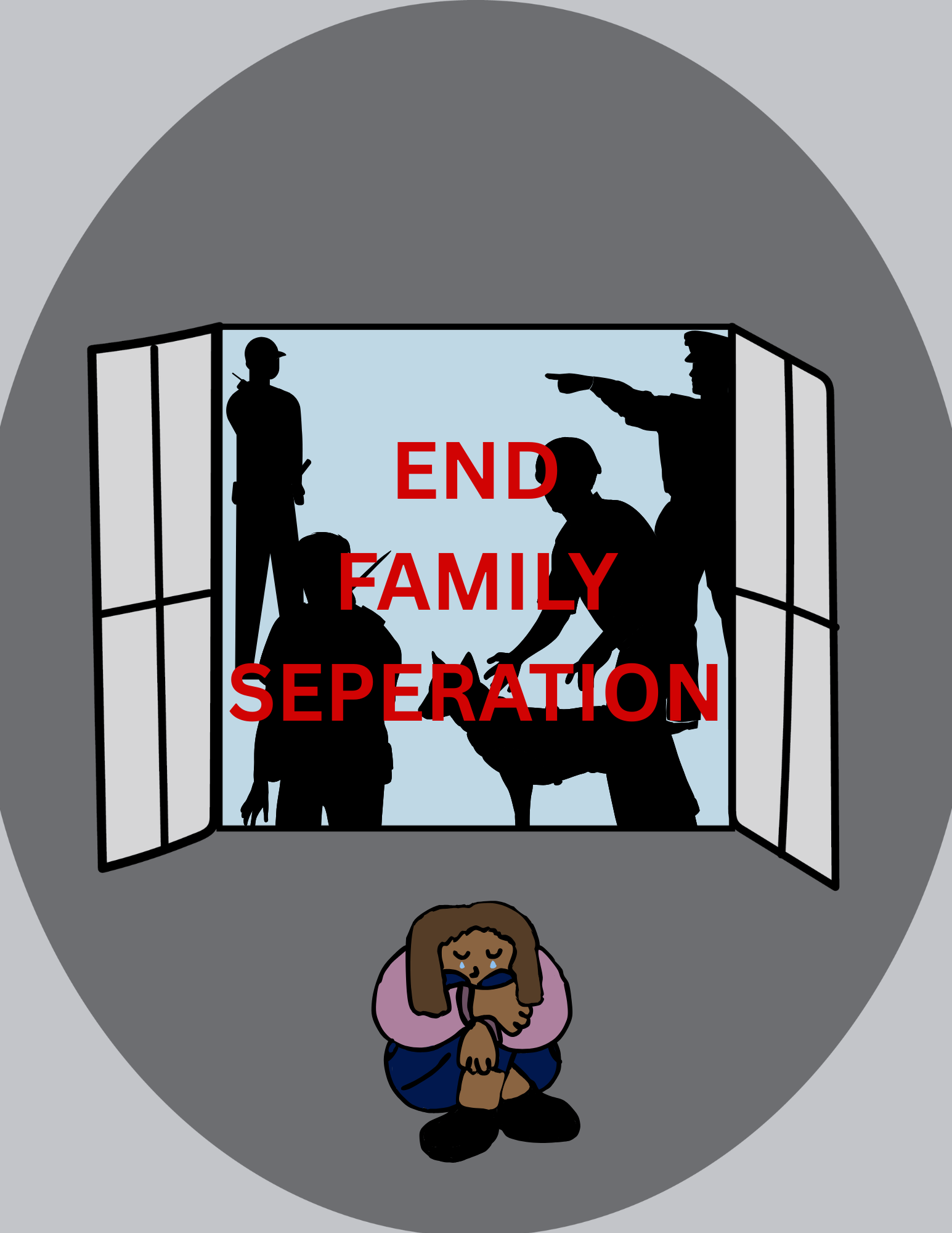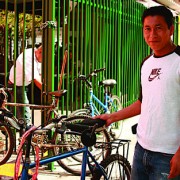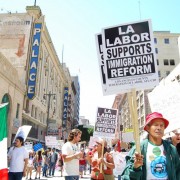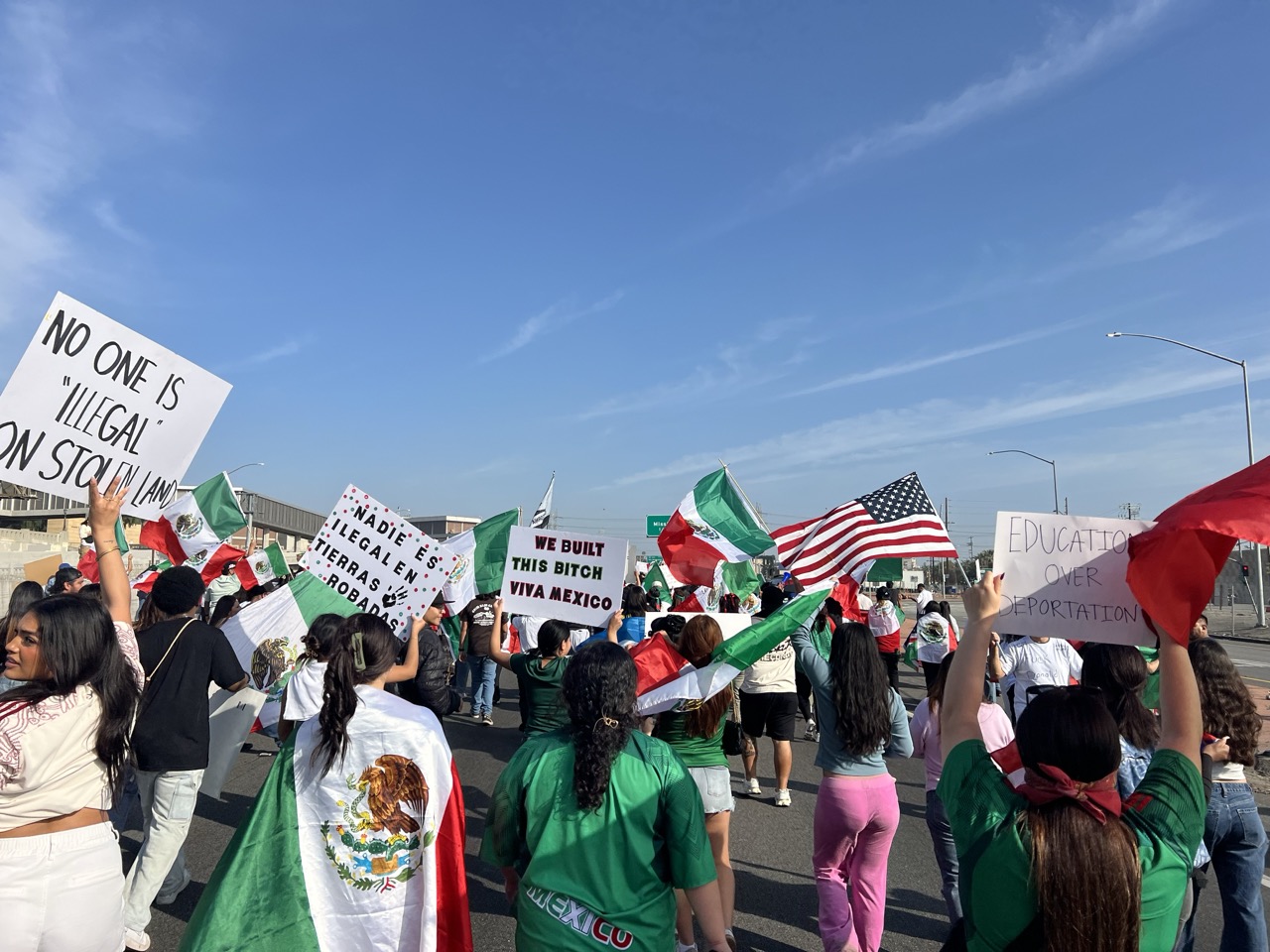A Public Health Crisis: Addressing the Mental Health Needs in Latinoe Immigrant Communities

Designed by Valeria Muñoz
Undocumented Latine immigrants in the United States face a mental health crisis fueled by systemic discrimination, fear of rejection, and the constant need to conceal aspects of their identity to avoid targeting or exclusion. These overlapping stressors, rooted in both policy and widespread xenophobia have led to heightened rates of anxiety, depression, post-traumatic stress, and social isolation. The Trump administration’s anti-immigrant rhetoric and restrictive policies intensified this health crisis, where people have fear in their daily life. I suggest we analyze this using Minority Stress Theory to understand how chronic exposure to stress burdens undocumented immigrants, whose mental health is often destabilized not only by their undocumented status but by the stigma and silence that surround it. The cumulative psychological and physical toll of these stressors demands urgent mental health interventions and immigration policy reform that prioritize the dignity and well-being of this population. It can be difficult to access resources in our current political climate, thus, resources are attached to the bottom of this publication for your use!
Introduction to Research
The mental health of undocumented Latine immigrants in the United States has been deeply affected by immigration policies and anti-immigrant rhetoric, particularly during the Trump administration. Minority Stress Theory offers a critical lens for understanding how systemic and interpersonal stressors uniquely burden this vulnerable population and contribute to widespread psychological distress. According to Valentín-Cortes et al. (2020), these individuals often face multiple, overlapping stressors tied to their marginalized identity, including discrimination, fear of rejection and the need to conceal aspects of their identity to avoid targeting or exclusion.
The current socio-political climate has intensified these challenges. Researchers describe a rise in “heightened anxiety and adverse mental health outcomes because of unique minority identity-related stressors created by a growing anti-immigrant social environment” (Valentín-Cortes et al., 2020, p. 325). Acts of discrimination, fear of deportation and internalized stigma are just a few of the psychological burdens carried by undocumented individuals.
Among the most pervasive and damaging of these stressors is the constant fear of deportation and family separation. One study participant shared, “I have immense stress… If they want, they can send me back to Mexico, they’ll take everything from me” (Valentín-Cortes et al., 2020, p. 333). For parents in mixed-status families, this fear is especially pronounced, as the threat of being separated from their children hangs over their daily lives.
These fears are not unfounded. Federal, state and local policies often directly or indirectly shape the well-being of undocumented immigrants by limiting access to essential resources such as education, health coverage, food assistance, employment and preventive care. Increased immigration enforcement and surveillance disrupt employment opportunities, erode social ties and create formidable barriers to accessing public services. These conditions generate chronic stress, anxiety and fear of detention or deportation (Ornelas et al., 2020). They also contribute to broader harms: U.S.-born children growing up without one or both parents, deepening poverty, lower academic achievement and growing distrust in public institutions. Multiple studies affirm that harsh immigration policies are linked to heightened rates of depression, anxiety, PTSD and substance abuse among undocumented populations (Hacker et al., 2015; Martinez et al., 2015; Ornelas et al., 2020).
Jocelynn Rojo Carranza
The consequences are particularly visible in tragic cases like that of Jocelynn Rojo Carranza. On February 8, 2025, the 11-year-old from Gainesville, Texas, died by suicide after enduring bullying related to her family’s immigration status. Just days earlier, on January 30, Jocelynn had reported to her school principal that a student on her bus made remarks about deportation and U.S. Immigration and Customs Enforcement targeting Hispanic students. According to a statement from the Gainesville Independent School District (GISD), this report was part of their investigation (Faheid & Park, 2025). Jocelynn’s death underscores the urgent need for school districts to create environments where all students, regardless of immigration background, feel safe, seen, and supported. The Gainesville Independent School District must be held accountable not only for the actions they did not take in response to Jocelynn’s report but also for their broader failure to recognize and address the specific vulnerabilities faced by children in immigrant families.
Accountability means more than releasing a statement; it requires a transparent investigation, a reevaluation of anti-bullying and reporting protocols, and a commitment to culturally responsive staff training. Schools must establish clear systems for identifying, documenting, and addressing identity-based harassment including xenophobic bullying, and provide mental health support that is trauma-informed and accessible to all students such as by being directed to a licensed professional such as a school counselor, social worker, or school psychologist. Honoring Jocelynn’s memory means to actively work to ensure that no other child is left to suffer in silence, again.
The silence surrounding cases like Jocelynn’s reflects a broader issue where undocumented individuals often feel they have nowhere safe to turn. In this climate of fear and exclusion, many begin to withdraw socially as a way to cope, which unfortunately leads to increased harm. In response to heightened surveillance and anti-immigrant rhetoric, many individuals retreat from community spaces and support systems, leading to profound social isolation. This isolation, in turn, heightens risks for depression, anxiety and suicidal thoughts (De Oliveira et al., 2017; Fortuna et al., 2007; Martínez Pincay & Guarnaccia, 2007). The result is a self-perpetuating cycle of fear, disconnection and psychological distress. In this way, the structural violence of exclusion doesn’t just isolate individuals; it quietly erodes their mental health, trapping them in a cycle where fear, invisibility and despair reinforce one another.
Moreover, the health consequences of chronic stress extend beyond emotional suffering. Research shows that prolonged exposure to stress is linked to 75%–90% of chronic health conditions, including cardiovascular diseases (like hypertension); metabolic disorders (such as diabetes and non-alcoholic fatty liver disease); neurodegenerative illnesses (including depression, Alzheimer’s and Parkinson’s); and even cancer (Cohen et al., 2007). In this way, the emotional toll of anti-immigrant policies becomes a physical health crisis.
Conclusion
Minority Stress Theory illuminates how systemic discrimination, xenophobia, and restrictive immigration policies create chronic psychological stress for undocumented Latine immigrants. This stress emerges from persistent fears of deportation, rejection, and the need to conceal one’s identity to survive in a hostile environment. The Trump administration’s anti-immigrant rhetoric and policies amplified these fears, deepening social isolation and destabilizing mental health. This cumulative stress has led to widespread anxiety, depression, and trauma with devastating consequences, as seen in cases like Jocelynn Rojo Carranza’s. By applying Minority Stress Theory, we see how identity-based oppression generates long-term health disparities, mental and physical, that demand urgent intervention. Culturally responsive care and policy reform are not just recommendations; they are imperatives for protecting and honoring the lives of undocumented immigrants.
Please interact with the following resources and share with others:
Description: Immigrants Rising offers a comprehensive collection of resources to support undocumented individuals in pursuing higher education, mental wellness and career development. From scholarship lists and legal guidance to entrepreneurship tools and mental health support, this platform is designed to empower undocumented communities to thrive despite systemic barriers. Explore their resource hub to access practical tools, inspiring stories and pathways toward personal and professional growth.
2. Mental Health Connector For Students in California – Immigrants Rising
Description: The Mental Health Connector by Immigrants Rising links undocumented young people with culturally competent, undocumented-friendly mental health professionals. This free and confidential service helps users find therapists who understand the unique challenges of navigating mental health without legal status. Whether you’re seeking emotional support, therapy or guidance, the Connector is here to help you feel seen, safe, and supported.
3. Resources for Undocumented Immigrants & Families – National Latinx Psychological Association
Description: This resource sheet from the National Latinx Psychological Association (NLPA) provides mental health support specifically for immigrants, regardless of legal status. It includes a curated list of hotlines, therapy directories, legal aid, and emotional wellness tools tailored to the immigrant experience. Designed with accessibility and cultural sensitivity in mind, this guide offers vital support for navigating stress, trauma and uncertainty.
4. Immigration – Health Care Centers
Description: The Los Angeles County Department of Health Services (DHS) ensures comprehensive healthcare access for all individuals, irrespective of immigration status. Their clinics offer primary care services, and DHS maintains a strict policy of non-collaboration with U.S. Immigration and Customs Enforcement (ICE), designating all County properties as sensitive locations where immigration enforcement is prohibited. Additionally, DHS provides free legal assistance through partnerships like the Medical Legal Community Partnership, addressing issues such as immigration, housing, and domestic violence.
Description: The National Alliance on Mental Illness (NAMI) provides guidance for immigrants, refugees, and undocumented individuals seeking mental health support in the U.S. They recommend contacting local NAMI affiliates for information on culturally sensitive resources, support groups, and educational programs tailored to diverse backgrounds. NAMI also offers peer-led support groups like NAMI Connection for individuals with mental health conditions and NAMI Family Support Group for caregivers, fostering shared experiences and mutual support within the community.
6. Resource Hub for Undocumented and Immigrant Families – Center for Migration Studies
Description: The Center for Migration Studies (CMS) has curated a comprehensive Resource Hub for Undocumented and Immigrant Families, offering tools and information from trusted organizations. This collection includes online legal screenings, directories of immigration legal assistance, and resources to understand and assert your rights. Designed for immigrants, their families, and advocates, these resources aim to navigate legal complexities and promote well-being within immigrant communities.
7. https://findhelp.org/search_results/90024
Description: FindHelp.org is a site that finds programs in your area based on zip code. Please fill in your zip code to find Food, Housing, Health, Financial support and other beneficial programs.









